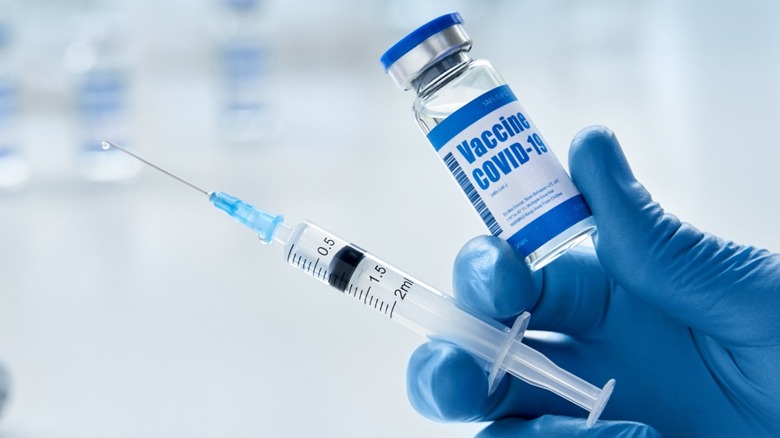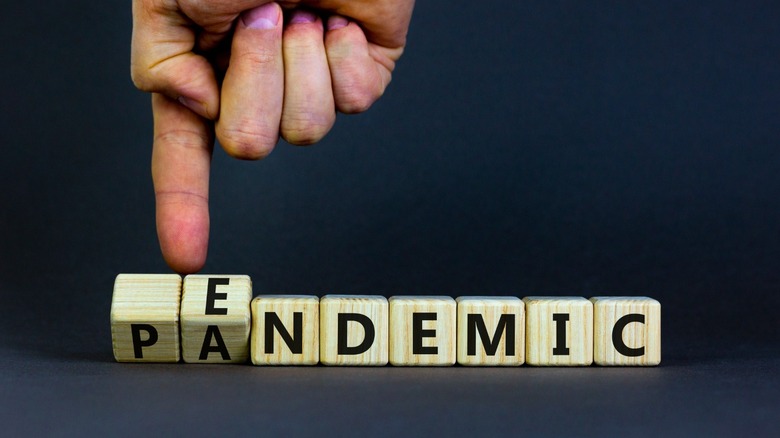Experts Reveal The Challenges Of Reaching COVID-19 Herd Immunity
As COVID-19 vaccines came on the scene, health experts were hoping for high vaccination rates that would lead to herd immunity. However, according to CNN, scientists are beginning to have doubts about whether humans will be able to reach COVID-19 herd immunity, at least any time soon. Herd immunity is when enough individuals in the population have developed immunity to a virus, essentially creating a protective shield, making it less likely that those who are most vulnerable become infected.
There are several reasons why health experts are expressing doubts as to why COVID-19 herd immunity will be possible. For one, the vaccination rate is not high enough, especially considering how contagious COVID-19 is. Additionally, CNN points out that COVID-19 is prone to morphing into new variants and that the available vaccines, while a highly effective defense against serious disease, do not entirely prevent COVID-19 infections.
According to Dr. Adam Kucharski, co-director of the Center for Epidemic Preparedness and Response at the London School of Hygiene and Tropical Medicine, a minimum of 98% of the population needs to be vaccinated to attain herd immunity (via CNN). Given the prevalence of vaccine hesitancy, it does not appear that enough people will have the level of protection required to reach this herd immunity threshold, at least until most people have had repeated exposures to either infection or vaccination.
What does the future of COVID-19 look like?
As hopes for reaching COVID-19 herd immunity are waning, health experts are beginning to speculate how the world will live with and manage COVID-19. Some believe it will become endemic, meaning it will remain a persistent virus similar to influenza and some respiratory viruses. Professor Jeffrey Shaman, an infectious disease modeler and epidemiologist at Columbia, points out in his recent New York Times guest essay that, while we can only understand epidemic patterns retrospectively, there are some clues as to what we can expect.
One scenario is that COVID-19 eventually resembles the flu with seasonal outbreaks and lower death rates. How common and how severe COVID-19 outbreaks become, along with the frequency of new variants and the nature of the mutations, will determine how the world will need to adapt. If mutations are mild, they may be thwarted by one type of vaccine; however, drastic changes in variants could evade vaccines and lead to more frequent outbreaks.
Yet there are still those holding out some hope for herd immunity. Barry Bloom, an emeritus professor of public health at Harvard University, tells CNN that he believes it is possible that vaccines can become more durable by attacking the stem of COVID-19's spike protein. He also points to the development of nasal spray vaccines that can help prevent transmission. Ultimately, if the virus does remain, Bloom predicts it will become milder because COVID-19 needs a host to survive, and killing humans defeats that purpose.


